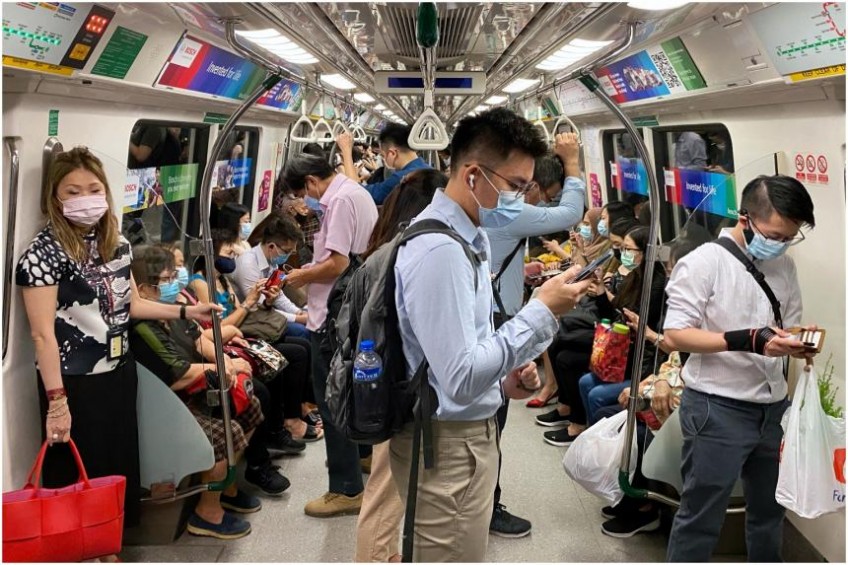To work from home or not? Crowded trains affect people’s decision, study shows

People are more likely to want to return to their workplaces rather than continue logging in from home if MRT trains are, firstly, less crowded and, secondly, journey times are shorter.
This was the finding of a Nanyang Technological University (NTU) study published in Travel Behaviour and Society – a journal of the Hong Kong Society for Transportation Studies – in January.
Conducted by Associate Professor Wong Yiik Diew from NTU’s School of Civil and Environmental Engineering and final-year student Muhammad Sofian Mohamed Tahir, the study involved polling 574 train commuters between Dec 31, 2020 and Jan 16 last year amid the pandemic.
It found that how crowded trains are accounted for 12.8 per cent of an employee’s decision to work from home or the office, and travel time accounted for 10.7 per cent.
While acknowledging that there are several other factors which can influence the decision-making process, the researchers said they chose to focus on comfort and time.
This was because their study, To Go, Or Not To Go? Modelling The Effects Of Employment Decentralisation On Telecommuting Preferences, identified the two factors as most likely to change with increasing decentralisation – moving business and economic activities away from the city centre to nearer homes.
Prof Wong said: “It would make sense that commuters who live far from their workplaces would generally prefer to work from home, but through our study, we managed to identify that travelling in comfort – be it having a seat or ample place to stand in a train – was more important to the everyday commuter.”
The finding, he noted, was especially relevant given “the trend in urban planning to maximise the amount of residential, business and leisure space within walking distance of public transport”.
Mr Sofian, who is now pursuing a Master of Science in transportation systems at the Technical University of Munich, said: “While there have been many studies describing the impacts of workplace flexibility on travel behaviour, what we have lacked is an understanding of the views of existing telecommuters who may be swayed to return to commuting to their offices.”
Commenting on the finding, Singapore University of Social Sciences transport economist Walter Theseira said: “The study makes the important point that one of the benefits of decentralisation would be improved welfare, through commutes that are more acceptable to workers.
“The question is whether commutes to regional business hubs are really more comfortable and shorter for most commuters.
“For example, Jurong East is one of the stations with the highest traffic in the MRT system. For commuters who don’t live in the west, it’s likely their commute times to Jurong East would be higher than to the city, and could be better or worse in comfort depending on whether they need to pass through the city.”
Associate Professor Theseira said the benefits of regional business hubs largely depend on whether they result in more people living closer to where their workplaces are.
The NTU research is similar to a study conducted by the University of the West of England (UWE Bristol) that was published in October 2017.
Led by Dr Kiron Chatterjee, a professor in travel behaviour at UWE Bristol, it found that an additional 20 minutes of commuting each working day had the same impact on job satisfaction as a 19 per cent pay cut.
The study, which involved more than 26,000 employees in England over a five-year period, found that every extra minute of commuting time reduces job satisfaction and leisure time satisfaction, increases strain and worsens mental health.
The NTU study found that the median travel time by MRT was 45 minutes – in line with a 2020 Singapore Census of Population’s median, which was a 12.5 per cent increase from 40 minutes a decade earlier.












Leave a Reply